Description
Name in North American Boletes: Leccinum nigrescens
Genus: Leccinum
- Genus 2: Leccinellum
Species: crocipodium
- Species: nigrescens
Common Name:
Tells: Yellow pores stain browner. Cap flesh stains red/pinkish-gray. Pitted cap ages from blackish to yellow-brown, & often cracks/fissures w/age.
Other Information: Likes oak. Stem is yellowish (sometimes red-brown by base), often swollen in the middle or lower region, & has scabers that darken from brown to blackish. Hard to distinguish from L. rugosiceps, except that cap is usually lighter, the stem doesn’t sell, the flesh stains a deeper red, & the pores DNS except for the occasional blue-green mark when you find it. Both are good edibles so it doesn’t matter much from a practical point of view.
Science Notes: The powers that be moved this mushroom from Leccinum to the newly erected genus Leccinellum, changing the species name too for good measure, but have now shifted it back into Leccinum based on further DNA testing.
Edibility: Good.
CHEMICAL TESTS:
- NH4OH (Ammonia): Cap skin turns reddish brown.
- KOH: No data.
- FeSO4 (Iron Salts): Cap skin has no reaction.
Links:
 |
0 |  |
0 |  |
209 |  |
240 |

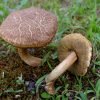
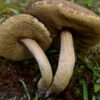
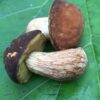
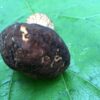
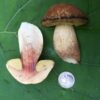

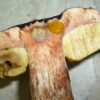
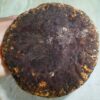
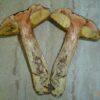
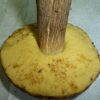
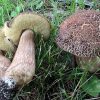
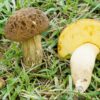

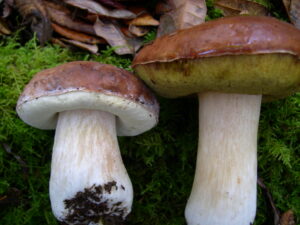
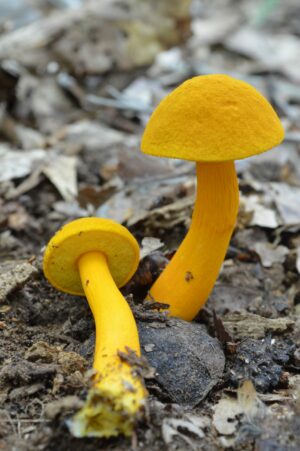
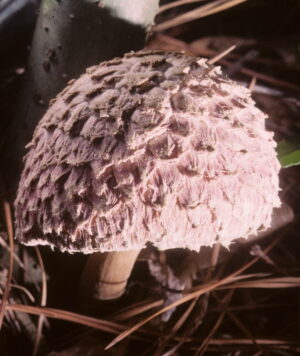
Got something to discuss?